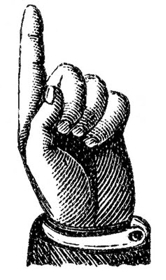Titcomb is an English surname which referred to someone who came from Tidcombe in Wiltshire. In Old English the name was “Titicome”, or someone who dwelt at a place where birds habitated. In Wiltshire, this family held a seat as “Lords of the Manor of Tidcombe”.
Early records show the name used, but without a surname: “Titicome” in 1086 and “Titecumba” in Wiltshire in 1197 and “Titecumbe” in 1242. William Tittacombe was documented in Somerset County in the 1300’s. By the mid-1400’s, the usage of surnames became more common. Other spelling variations include: Tytcomb, Tidcom, Titcum, Tidcum, Titchcume, Titchcumb, Titchcomb and Tichcomb.
Perhaps the first Titcomb to venture across the ocean to New England is highlighted below, along with one of his descendants, many of whom fought valiantly in the Revolutionary War.
William Tytcombe
William Tytcombe was born on August 6, 1618 in Wiltshire, England to parents Edward and Alice (Coleman) Tytcombe. Young William took passage on the Mary and John with a group of Puritans on March 24, 1634. However, William was one of six men who were left behind to “oversee the chattle” (cattle) which departed Southampton on April 16, 1634. Both ships arrived in late May or early June and most passengers went first to the village of Ipswich in Massachusetts Bay Colony.
A year later the group moved up the coast and founded the town of Newbury. Prior to 1640, William married Joanna Bartlett, daughter of Elder Richard Bartlett, Sr. Their first child, Sarah, was born on February 17, 1640, followed by the birth of several more children:
Hannah – January 3, 1642
Mary – February 17, 1644
Millicent – July 7, 1646 (died January 20, 1664)
William – March 18, 1648 (died June 2, 1659)
Penuel – December 16, 1650
Benaiah – June 28, 1653
Joanna died on the same day that Benaiah was born so she died in childbirth. On March 3, 1654 William married widow Elizabeth (Bitfield) Stevens. To their union were born the following children:
Elizabeth – December 12, 1654
Rebecca – April 1, 1656
Tirzah – February 21, 1658
William(2) – August 14, 1659
Thomas – October 11, 1661
Lydia – June 13, 1663
John – September 11, 1664
Ann – July 7, 1666
William fathered fifteen children, all living to full adulthood with the exception of the first William, Hannah (not mentioned in his 1676 will) and Millicent.
 William was a farmer and active in the affairs of both his church and town. On June 22, 1642, he took the oath of freeman, becoming a full-fledged member of the colony. In 1646 he was a selectman, served on various town committees, a commissioner in 1655, 1658 and 1670, a deputy to the General Court in 1655, a constable in 1651, as well as serving as a juror several times.
William was a farmer and active in the affairs of both his church and town. On June 22, 1642, he took the oath of freeman, becoming a full-fledged member of the colony. In 1646 he was a selectman, served on various town committees, a commissioner in 1655, 1658 and 1670, a deputy to the General Court in 1655, a constable in 1651, as well as serving as a juror several times.
William became embroiled in a church controversy beginning in 1645. The faction that William aligned himself with preferred to be governed by elders and a presbytery, rather than the Congregational consent and election method of governance. The controversy continued until in 1671 a trial decision determined that William, along with five others (including his brother-in-law Richard Bartlett) were “guilty of very great misdemeanors, though in different degrees, deserving of severe punishment.” William’s fine was four nobles (coins) – the leader of the opposition was fined twenty nobles.
William died on September 24, 1776. Judge Samuel Sewall noted in his diary that he died “Sabbath day, after about a fortnight’s sickness of the Fever and Ague,” and “one week thereabout lay regardless of any person and in great pain.” His will had been written six days before his death wherein he bequeathed varying amounts of money to eleven of his children. To his wife Elizabeth he left one-third of all his lands for her use and benefit until she died. The remainder of his land and holdings passed to his oldest surviving son, Penuel.
Brigadier General Jonathan Titcomb
The great grandson of William Titcomb was a prominent officer during the Revolutionary War. Jonathan Titcomb was born to Josiah and Martha (Rolf) Titcomb on September 12, 1727 – Josiah was Benaiah’s son. Jonathan was appointed a Brigadier General and “manifested great zeal and activity in his country’s cause throughout the war.” His leadership during the Battle of Rhode Island was noted by Lafayette as “the best fought battle of the war.”
In 1784 he received an appointment from General Washington as a naval officer, and was appointed again in 1790. General Washington visited Newbury in 1790 and Jonathan served as one of his escorts, as noted in Washington’s diary. No doubt, great grandfather William would have been proud.
 Did you enjoy this article? Yes? Check out Digging History Magazine. Since January 2018 new articles are published in a digital magazine (PDF) available by individual issue purchase or subscription (with three options). Most issues run between 70-85 pages, filled with articles of interest to history-lovers and genealogists — it’s all history, right? 🙂 No ads — just carefully-researched, well-written stories, complete with footnotes and sources.
Did you enjoy this article? Yes? Check out Digging History Magazine. Since January 2018 new articles are published in a digital magazine (PDF) available by individual issue purchase or subscription (with three options). Most issues run between 70-85 pages, filled with articles of interest to history-lovers and genealogists — it’s all history, right? 🙂 No ads — just carefully-researched, well-written stories, complete with footnotes and sources.
Want to know more or try out a free issue? You can download either (or both) of the January-February 2019 and March-April 2019 issues here: https://digging-history.com/free-samples/
Thanks for stopping by!
Excellent article. Thank you